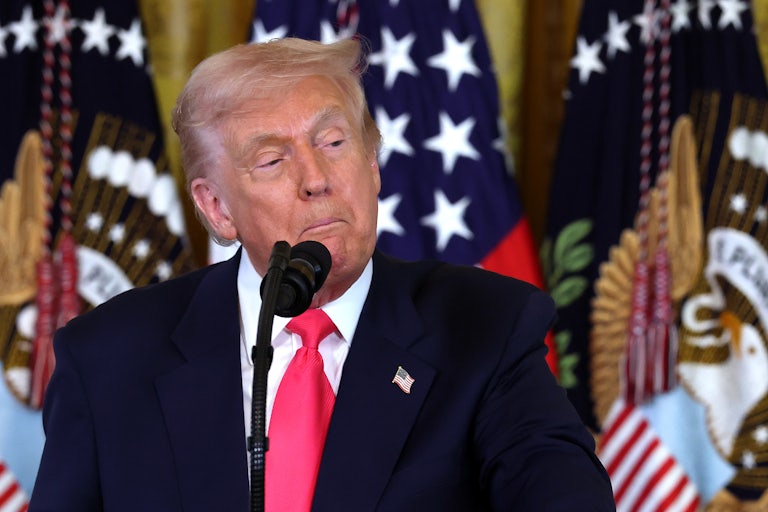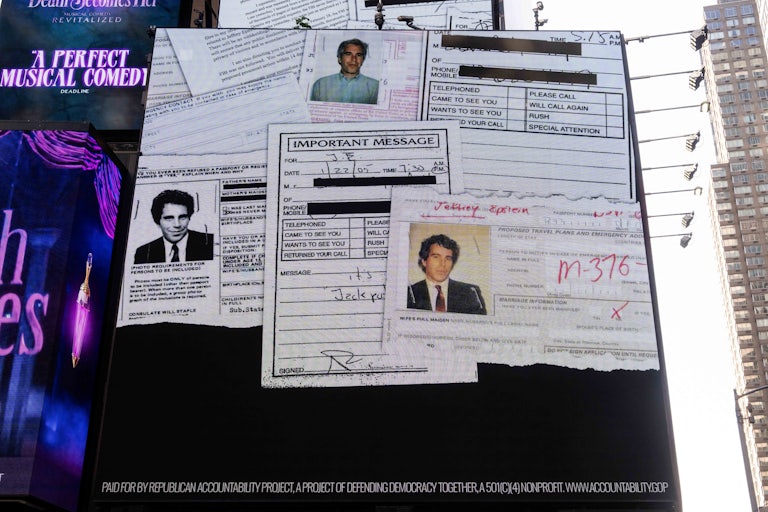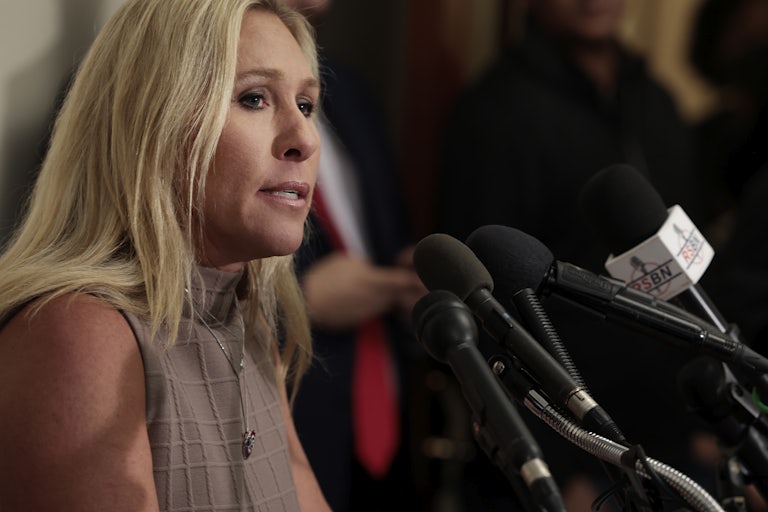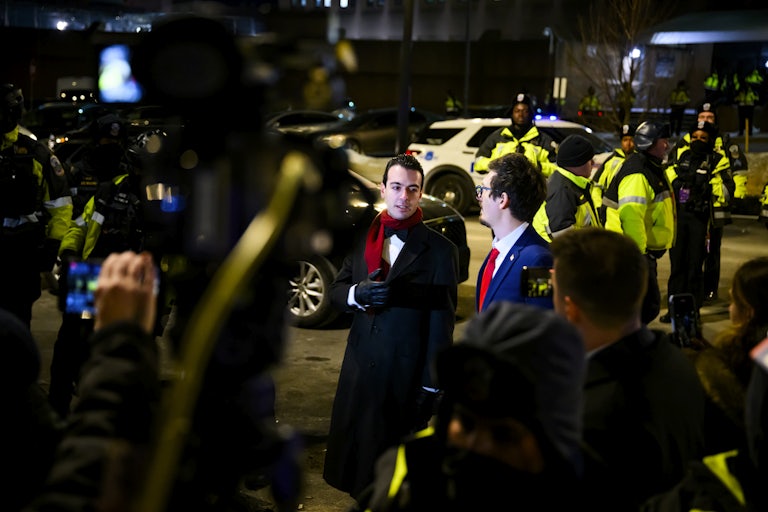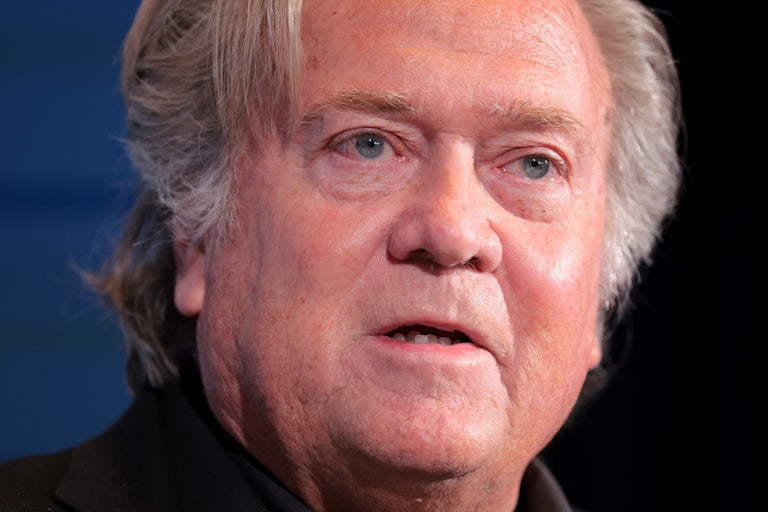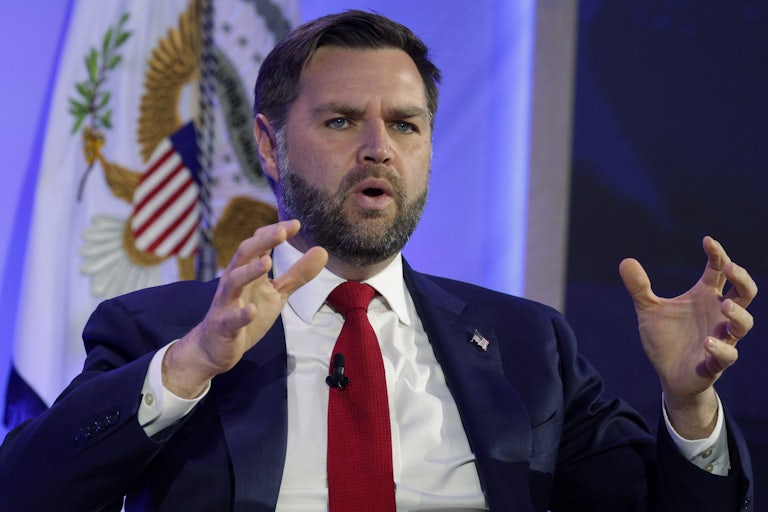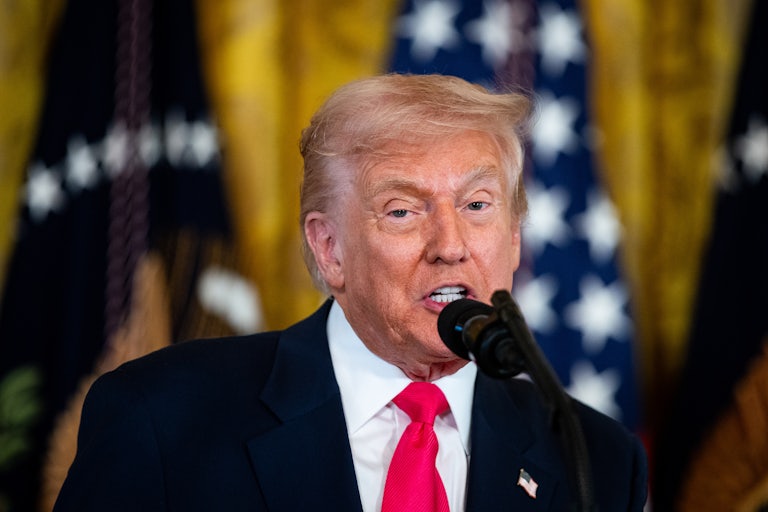Ex-UVA President Rips MAGA Governor Over Trump’s DEI Attacks
James Ryan spilled the tea on his ouster and the Trump administration’s attacks on the University of Virginia.
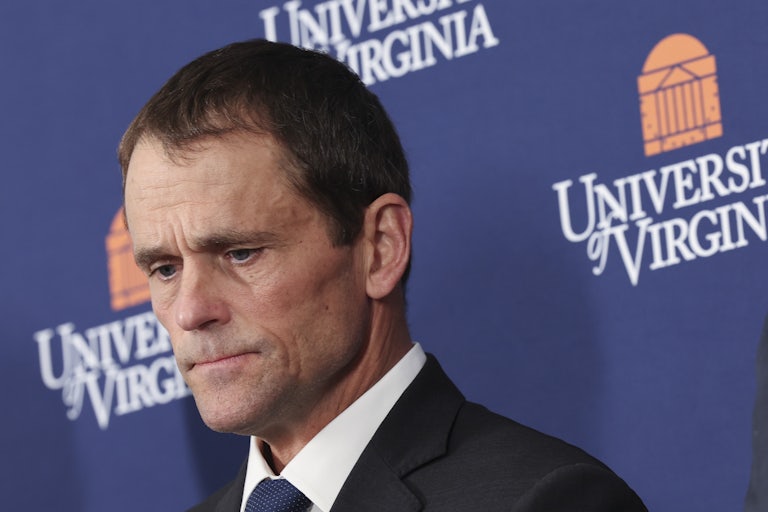
The recently ousted leader of the University of Virginia released a tell-all memo Friday on the DEI feud with Republican Governor Glenn Youngkin that cost him his job.
In a 12-page letter to the university’s Faculty Senate, former UVA President James E. Ryan detailed how Youngkin had mischaracterized the university’s decision regarding diversity, equity, and inclusion policies, landing it in hot water with the Trump administration and its overzealous Justice Department. The DOJ promised to “bleed UVA white” before Ryan resigned.
Ryan said his experience differed “in significant parts” from previous accounts, including from Youngkin and the school’s rector, Rachel Sheridan.
In March 2025, the school received a resolution, drafted by Youngkin’s office, on how it should handle DEI policies under Donald Trump’s second term. Ryan noted that it was the first such time that Youngkin had acted on the school’s behalf in his seven years atop the institution.
The school, however, did not adopt the resolution in full, according to Ryan. Instead, the resolution was whittled down to something that even the board’s Democratic appointees found palatable: the dissolution of UVA’s central DEI office and a reshuffling of permissible programs.
But that night, Youngkin went on Fox News with a very different message for the nation—claiming that the university board had done “something radical and sweeping” by declaring that “DEI is dead.”
“Dead” was a difficult term to decipher, according to Ryan, who noted that “it’s not clear even today what it means to kill DEI, and the governor didn’t go much beyond the soundbite.”
“For example, did it mean that we could no longer try to recruit qualified first-generation students from rural parts of Virginia, or offer financial aid, or even serve matzah in the dining halls during Passover, because each of those efforts would be advancing diversity, equity, and/or inclusion?” Ryan speculated.
While the parameters of Youngkin’s Trump-inspired DEI goals remained obfuscated, the Republican governor successfully set the University of Virginia up for failure.
The school did what it said it would do, in accordance with the agreed-upon resolution. Part of that involved a thorough review of the college’s many schools, which the school deemed would require more than the original 30-day allotted timeframe. It was Sheridan, who was then serving as chair of the board audit committee, who demanded that school officials with knowledge of the shifting DEI policies remain silent until the university board had a chance to meet.
That turned out to be a huge problem.
“Having to remain silent about our response to the Board resolution left us in a difficult position because our community was curious about the changes and what it might mean for them,” Ryan argued. “At the same time, external critics interpreted our silence as inaction. We explained to Board members that we were being placed in an untenable position, given that we could not implement any changes if we could not even discuss them publicly.
“We also pointed out that the Board had merely asked for an update, which implied that more work could still be done. But they nonetheless insisted that we remain quiet. So began the narrative that we were recalcitrant and resistant to any changes, which was not true but would continue up and through my forced resignation,” Ryan wrote.
Further still, Youngkin’s comments had created false expectations in the Trump administration as to how the university would navigate the DEI demands. Three weeks after the school submitted its update to the board in late April, the school received a letter from the Justice Department, inquiring why they had not complied with the board’s resolution, using language that was more aligned with Youngkin’s remarks on Fox News than the actual text of the approved memo.
“It was unclear, and still is, why the United States Department of Justice would have the interest or authority to enforce a resolution of the Board of a state university as opposed to enforcing federal law,” Ryan wrote.
In the ensuing months, a group of UVA alumni at the Justice Department took aim at their old school. Ryan recollects the school’s communications with this DOJ team, noting that “neither of the DOJ lawyers were fans of mine.” He also chronicles the process of compiling hundreds of pages’ worth of admissions data for the Justice Department—only to have the agency turn around and mischaracterize the school’s approved requests for extensions as attempts to “stall” the process.
“Why our own lawyers did not seem to understand or appreciate that submitting information in stages would be better than submitting nothing at all, especially given the false accusations that we were stonewalling, remains a mystery to me,” Ryan continued. “I do not know if they were exercising their independent judgment or receiving directions from a Board member and/or the Attorney General’s office.”
Ryan issued his letter a day after Sheridan penned her own account of the Trump administration–infused events leading to the university president’s ouster. The boiling drama adds another flair to tensions between Youngkin and his successor, Democratic Governor-elect Abigail Spanberger, who has questioned the Youngkin-appointed board’s influence over UVA’s ability to select Ryan’s replacement.
